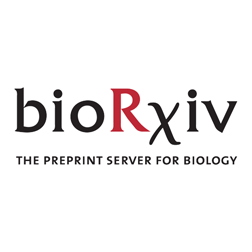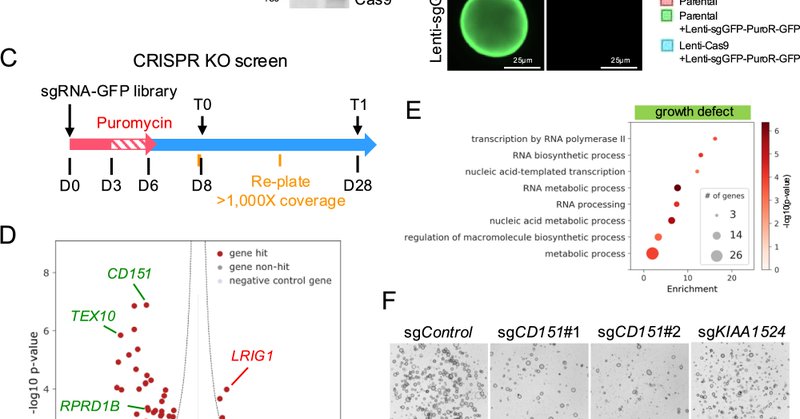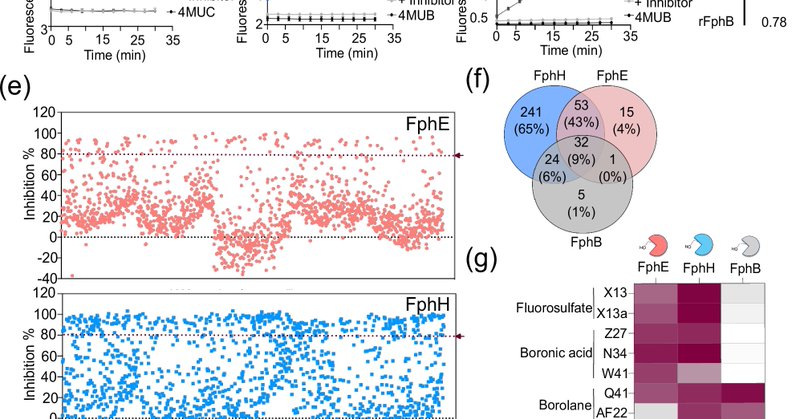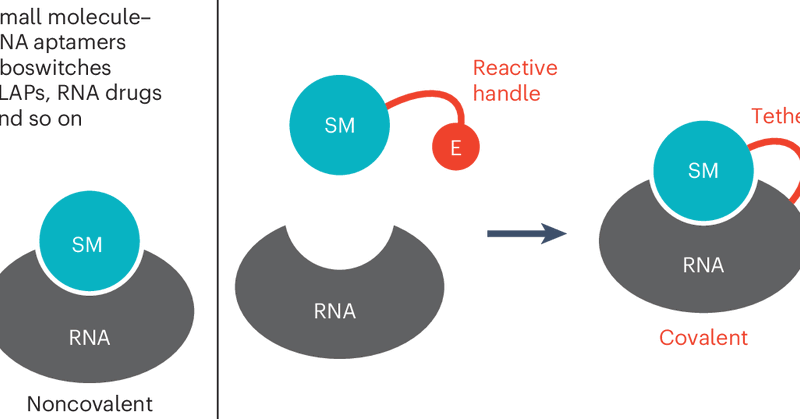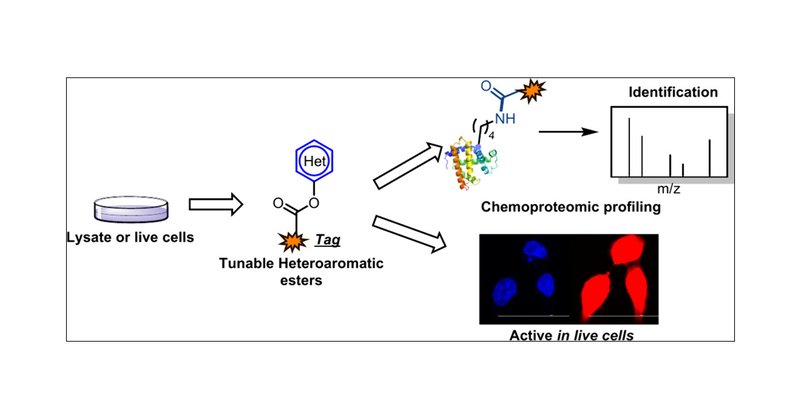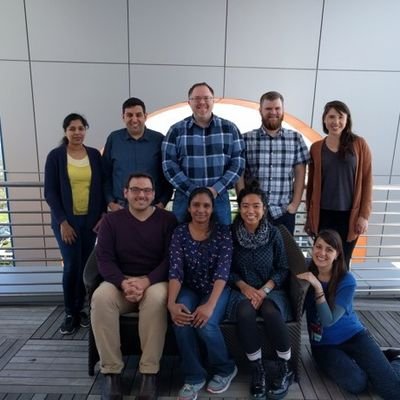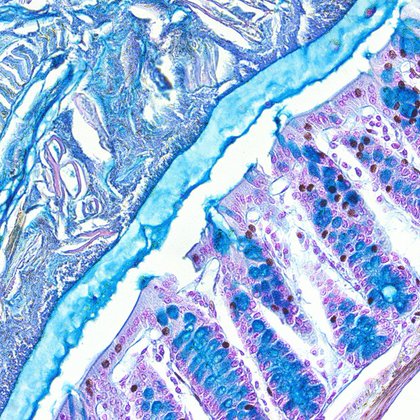
Jalal Uddin, PhD
@Jalal_UiT
Followers
227
Following
4K
Media
16
Statuses
307
PostDoc at @Yale University. PhD., UiT 🇳🇴 Visiting PhD., UMC Utrecht 🇾🇪 MSc at 강원대학교 🇰🇷 JUian 41Micro👨🎓 🇧🇩 ❤️ ABPP,Organoid, Phage.
New Haven, CT, USA
Joined August 2019
🎉 Excited to share my PhD work's preprint on ABPP of Klebsiella pneumoniae hydrolases! Identified 10 serine hydrolases, spotlighting new anti-virulence targets! Huge thanks to everyone involved, especially @ChristianSLentz😌Great collaboration! @CANS
https://t.co/z7VpuZO8lO
biorxiv.org
Klebsiella pneumoniae is a normal resident of the human gastro-intestinal tract and an opportunistic, critical priority pathogen that can cause a variety of severe systemic infections. Due to...
0
3
14
Large-scale CRISPR screening in primary human 3D gastric organoids enables comprehensive dissection of gene-drug interactions | Nature Communications
nature.com
Nature Communications - CRISPR-Cas9-based screens have allowed the study of gene-drug interactions. Here, the authors develop CRISPR-Cas9 knock-out, activation and repression screens in human...
0
0
0
Congrats to postdoc @ZheZhou_ICA on her paper out today in @cellhostmicrobe showing that gut bacteria cross-feed a common dietary antioxidant to produce energy under anaerobic conditions. Big thanks to collaborators Angela Jiang and Xiaofang Jiang @NIH. https://t.co/T7WYvRooD4
0
7
24
Our work identifying new covalent inhibitors of Staphylococcus aureus serine hydrolyses from fragment libraries is out! great work by @tulsiupadhyay.bsky.social and our many collaborators, including @christianslentz.bsky.social, @mfellnerlab.bsky.social. https://t.co/D0zrFe95Hz
link.springer.com
Nature Communications - Staphylococcus aureus is a leading cause of bacteria-associated mortality worldwide. New tools are needed to both image and treat this pathogen. We previously identified a...
2
7
47
Featured Article: Microbiota changes with CRC tumor location Fecal microbial changes in proximal vs distal CRC w/specific microbes linked to tumor location. Multi-cohort analysis demonstrates diagnostic potential of location-specific fecal bacteria in CRC https://t.co/dXXktNwbtG
1
22
80
Scientists from Peking University (@PKU1898) developed a microinjection-based method to quantify the growth time-dependent nonlinear elasticity of intestinal #organoids. 🧫 💡Learn more about their research: https://t.co/KrZOOl9xl1
0
2
7
Breakthroughs in medicine start with research — and lead to better lives. Ask Dr. Kevan Herold of Yale School of Medicine. His team’s work led to approval of the first drug able to delay the onset of Type 1 diabetes. He’s seen firsthand the profound effects on young patients
9
12
42
📢 New in @NatureComms! Researchers at the University of Hong Kong developed human #RespiratoryOrganoids that reproducibly propagated human rhinovirus C to characterize the virus-host interaction. 🦠 Learn more: https://t.co/Nj1pXxmKKw
0
3
8
Featured Article: C. jejuni promotes CRC metastasis CRC tumors enriched with Campylobacter, whose production of genotoxin accelerates tumor metastasis, offering insight into the role bacteria play in metastasis https://t.co/poAMXlsS7q
0
5
18
A 3-year postdoctoral position in antiphage immunity hosted by my lab (Lund), co-supervised @gem__atkinson (co-PI, structural bioinformatics, @lunduniversity) and Pontus Gourdon (co-PI, cryo-EM, Lund University and @uni_copenhagen). PleaseRT!
lu.varbi.com
Description of the workplace You will be based at the medical faculty in Lund. The group for molecular enzymology is located at the Biomedical Center (BMC) at Lund University and is led by senior lect
1
37
42
Interesting paper by the group of Rui Wang in Analytical Chemistry. They systematically studied several activated esters with heteroaromatics in the leaving group and show strong, tunable lysine labeling with high hydrolytic stability. #ChemBio
pubs.acs.org
Lysine residues on protein surfaces are abundant and often found in enzyme active sites, making them critical targets for studying undruggable proteins. However, the varied microenvironment surroun...
0
2
25
Great to see them apply the proteome-wide profiling method for electrophile reactivity and selectivity that we developed together with @nesvilab in Fragpipe in this exciting system.
0
2
6
Interesting @ChemRxiv preprint by the group of @ThomasBPoulsen with first author @EsbenSv. They used OxSTEF probes to study proteins with N-terminal cysteines in the proteome and specifically investigated difference in normoxia and hypoxia.
2
6
16
REVIEW @ScienceMagazine Chemical genetic approaches to dissect microbiota mechanisms in health and disease https://t.co/9ov2jkmRns
0
1
3
Check out this preview of the @cellhostmicrobe paper from the @StrowigLab in collaboration with #HIRI's @JoergLab. ⬇️
Bacterial small RNA makes a big impact for gut colonization Monzel & Desai @LIH_Luxembourg highlight work of @MoualiYoussef @StrowigLab IDing SrcF, sRNA from S. copri that promotes colonization by regulating bacterial degradation of dietary carbohydrates https://t.co/g9eGCrWuts
0
1
5
Interesting paper by the group of @MichaelBollong of @scrippsresearch in @J_A_C_S. A high-throughput assay for cysteine-reactive electrophiles based on luciferase activity allows identification of azetidinyl oxadiazoles as cysteine-reactive electrophiles. https://t.co/CyD25dBXIR
0
5
64
Check out this new paper from the Sander van Kasteren and @derozenleiden labs @LED3hub. Labeling of newly synthesized proteins with BONCAT identifies up- and downregulated proteins in S. aureus persisters. Very happy that we could make a small contribution
biorxiv.org
Bacterial persisters are a subpopulation of cells that exhibit a transient non-susceptible phenotype in the presence of bactericidal antibiotic concentrations. This phenotype can lead to the survival...
0
2
7
Tomo Mizutani & Matteo Boretto selected 4 spontaneous colon #cancer mutations by sequential withdrawal of growth factors from mismatch repair-deficient #organoids. Mutations resemble those of Lynch syndrome & MSI-H patients tumors. https://t.co/FKokUczHGk
3
17
92
Out now in @ScienceAdvances: Antibiotics damage the colonic mucus barrier in a microbiota-independent manner @Mucus_Man @meytaln
https://t.co/1Smbg5Qq99
science.org
Antibiotics inhibit production of the protective mucus in the colon, thus predisposing to gut inflammation.
0
12
29
1) Excited to share a ms entitled: Integrin-activating Yersinia protein Invasin sustains long-term expansion of primary epithelial cells as 2D #organoid sheets. It describes an alternative to #Matrigel
https://t.co/97jLdmRYHe A thread:
2
34
228

